Explanation of my 10 Ballon d'Or 2010
This is my ranking, my opinion on the Ballon d'Or of the year 2010. This ranking is based on the calendar year, not the season. What counts for this ranking is the player's regularity over the calendar year, the number of matches played, the ability to raise his level in big games, statistics (goals, assists, clean sheets, goals conceded, etc.) and trophies won (collective and individual).
#10 Diego Milito
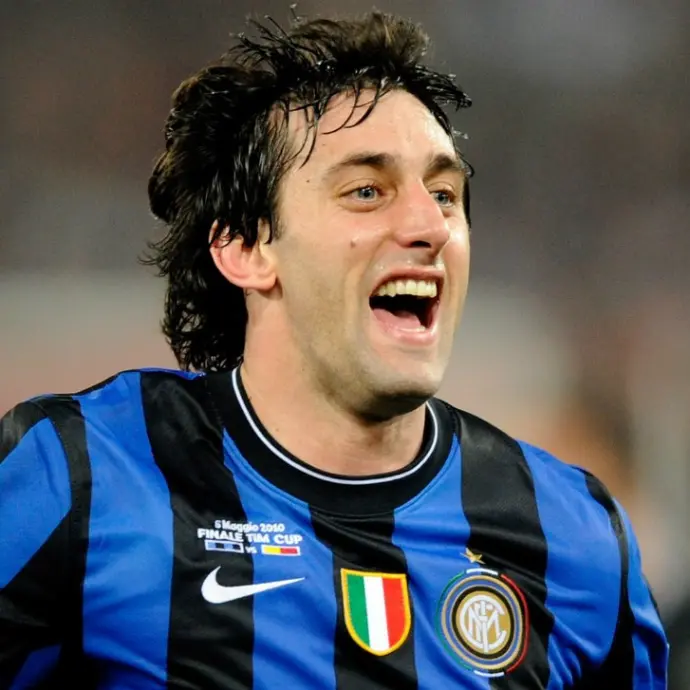
- Age : 30/31 years old
- Club : Inter Milan
- Statistics : 50 games, 23 goals, 7 assists
- Trophies : Champions League, Serie A, Club World Cup, Finalist UEFA Supercup, Italian Cup, Italian Supercup
- Individual Awards : Champions League POTY, Champions League TOTY, Serie A POTY, Serie A TOTY
In 2010, Diego Milito had a spectacular first half of the year, playing a crucial role in Inter Milan’s historic treble. His performances in Serie A, Coppa Italia, and the Champions League were decisive, with his most iconic moment coming in the Champions League final against Bayern Munich, where he scored both goals to secure Inter’s victory. His ability to deliver in high-pressure matches made him one of the most feared strikers in Europe. However, after the World Cup, where he had a limited role with Argentina, his form dipped, and he struggled to replicate his early-season brilliance. Injuries and tactical changes at Inter saw his influence diminish, making 2010 a year of two contrasting halves for Milito—one of triumph and one of decline.
#9 Diego Forlán
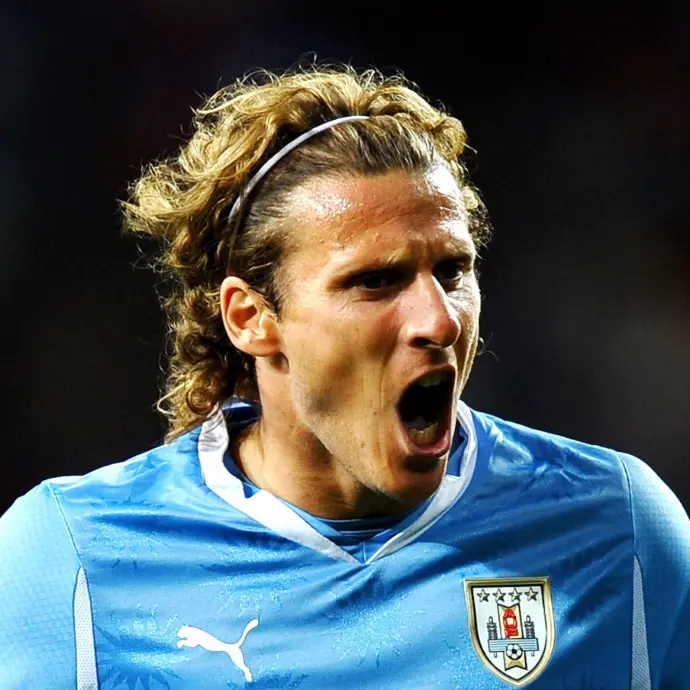
- Age : 30/31 years old
- Club : Atlético Madrid
- Statistics : 60 games, 13 goals, 26 assists
- Trophies : Europa League, UEFA Supercup, Finalist Spanish Cup
- Individual Awards : World Cup POTY, World Cup TOTY
In 2010, Diego Forlán delivered a World Cup performance for the ages, proving why he was the most influential player in South Africa. Leading Uruguay, he was the heartbeat of their attack, scoring five stunning goals and guiding his team to the semi-finals, their best finish in 40 years. His ability to strike the ball with precision and power, especially with the unpredictable Jabulani ball, made him a nightmare for goalkeepers. His defining moment came in the third-place match against Germany, where he scored a breathtaking volley that was later voted the best goal of the tournament. His leadership, technical brilliance, and clutch performances earned him the Golden Ball, cementing his status as the best player of the 2010 World Cup.
#8 Samuel Eto'o
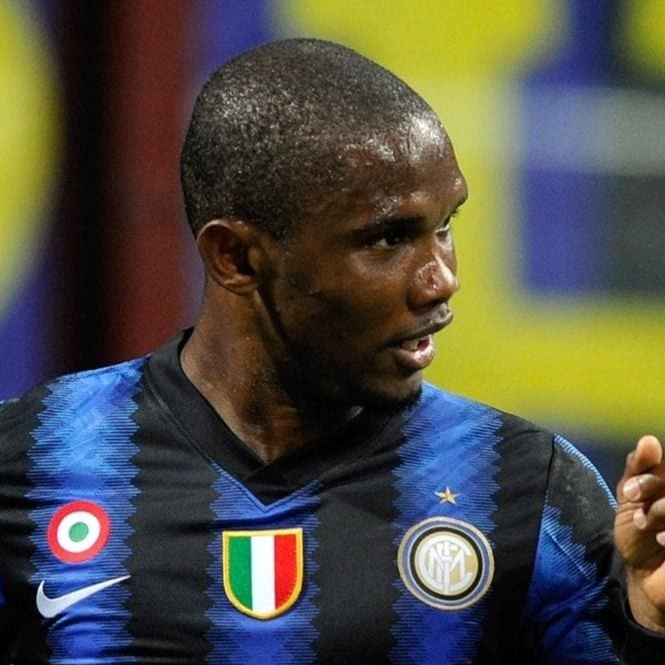
- Age : 28/29 years old
- Club : Inter Milan
- Statistics : 60 games, 33 goals, 13 assists
- Trophies : Champions League, Serie A, Club World Cup, Finalist UEFA Supercup, Italian Cup, Italian Supercup
- Individual Awards : /
In 2010, Samuel Eto’o showcased his versatility and selflessness, proving why he was one of the most complete forwards in world football. Leading Inter Milan, he played a crucial role in their Serie A, Coppa Italia, and Champions League-winning campaign, but what made his performances truly remarkable was his willingness to adapt for the team. Under José Mourinho, Eto’o sacrificed his usual striker role to play as a wide forward and even a defensive winger, prioritizing the collective over individual glory. His defining moment came in the Champions League knockout stages, where his tireless work rate and defensive contributions helped Inter overcome Barcelona and Bayern Munich. His ability to seamlessly transition between attacking and defensive duties made 2010 a standout year in his career, reinforcing his reputation as one of the most intelligent and team-oriented players of his generation.
#7 David Villa
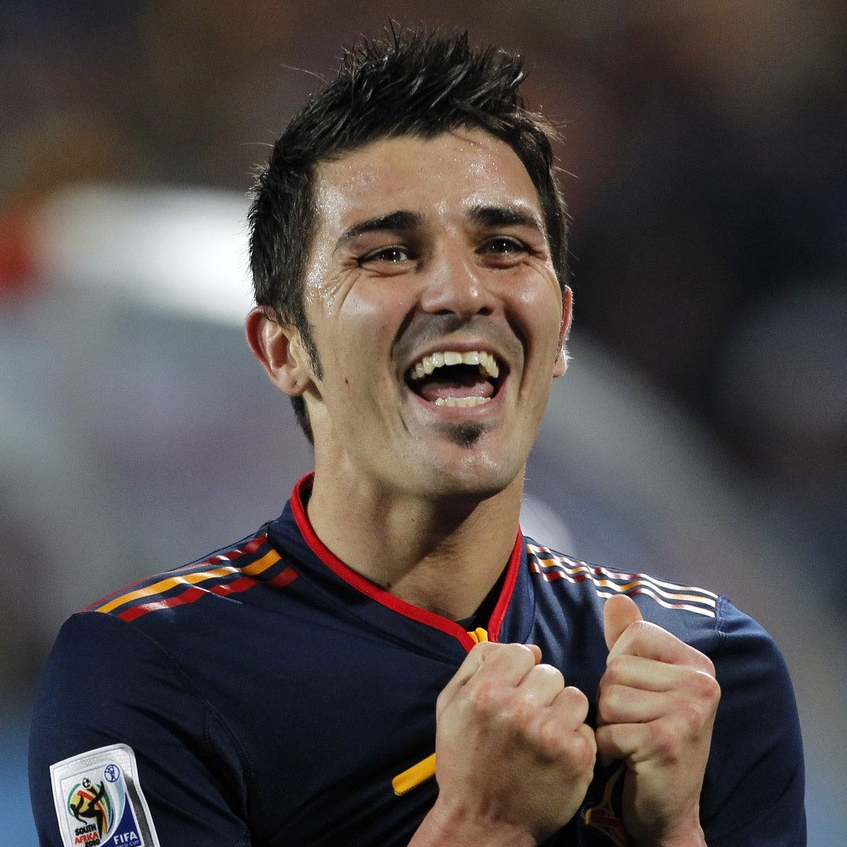
- Age : 28 years old
- Club : Valencia CF/FC Barcelona
- Statistics : 64 games, 35 goals, 9 assists
- Trophies : World Cup, Spanish Supercup
- Individual Awards : World Cup TOTT, Liga TOTY
In 2010, David Villa delivered a year of sheer brilliance, proving why he was one of the most lethal forwards in world football. Leading Spain, he was instrumental in their World Cup-winning campaign, finishing as the team's top scorer with five goals, including crucial strikes against Portugal and Paraguay in the knockout rounds. His ability to adapt to different attacking roles, whether as a central striker or drifting wide, made him indispensable to Spain’s possession-based system. His defining moment came in the semifinal against Germany, where his movement and finishing helped Spain secure a historic victory. Beyond his international success, Villa also made a high-profile move to Barcelona, where he quickly integrated into their dominant attacking trio alongside Messi and Pedro, scoring in the Champions League final against Manchester United. His combination of intelligence, technical mastery, and clutch performances made 2010 a career-defining year, reinforcing his reputation as one of the greatest Spanish forwards of all time.
#6 Iker Casillas
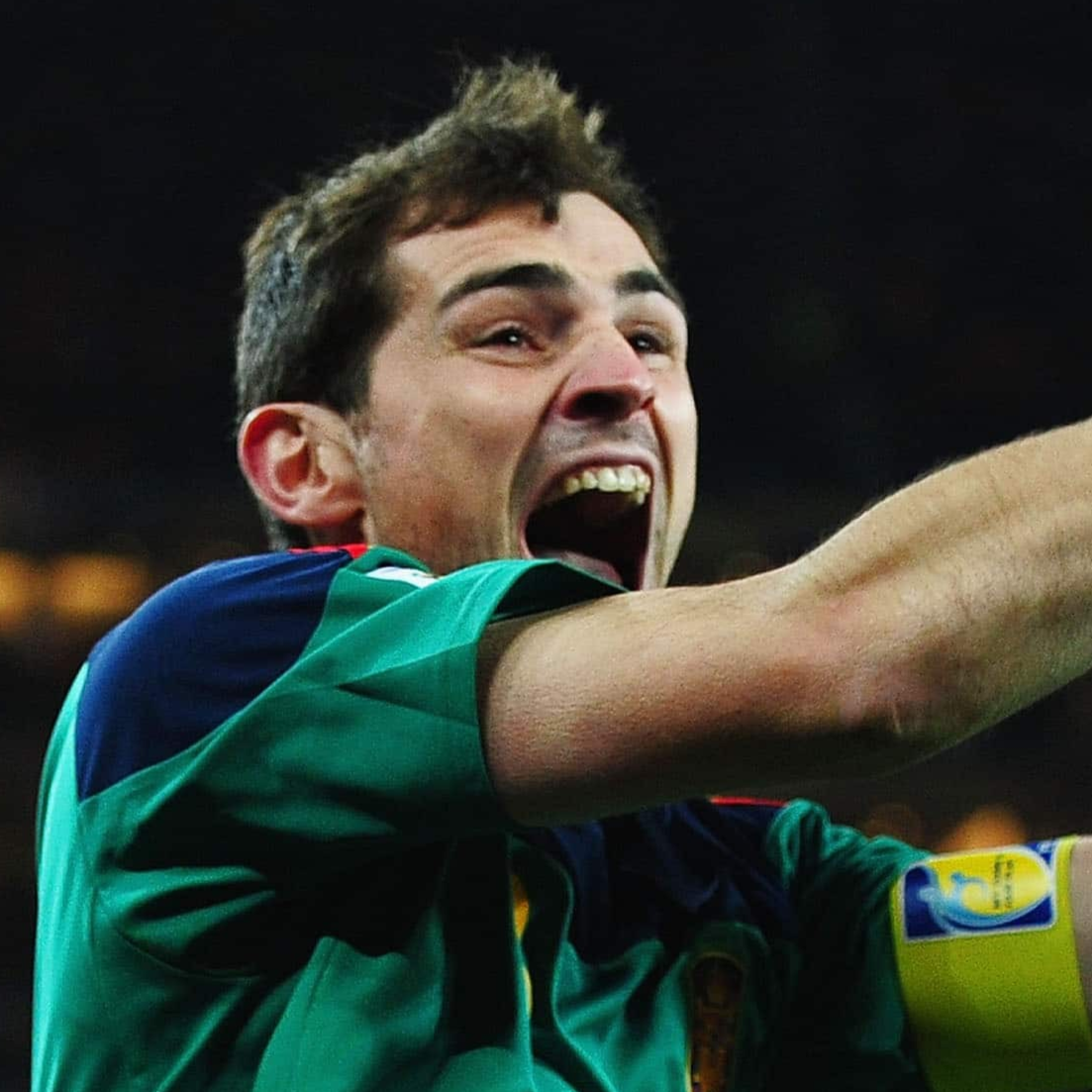
- Age : 28/29 years old
- Club : Real Madrid
- Statistics : 64 games, 51 goals conceded, 29 clean sheets
- Trophies : World Cup, Liga Vice-Champion
- Individual Awards : World Cup TOTT, IFFHS TOTY
In 2010, Iker Casillas delivered a year of goalkeeping excellence, proving why he was one of the most reliable and commanding shot-stoppers in world football. Leading Spain, he was instrumental in their World Cup-winning campaign, making crucial saves throughout the tournament, including two legendary stops against Arjen Robben in the final against the Netherlands. His ability to remain calm under pressure, organize his defense, and deliver match-winning performances earned him the Golden Glove award and solidified his status as one of the greatest goalkeepers of all time. Beyond his international success, Casillas continued to shine for Real Madrid, providing leadership and crucial saves in La Liga and the Champions League. His combination of composure, reflexes, and leadership made 2010 a career-defining year, reinforcing his reputation as one of the best goalkeepers of his generation.
#5 Cristiano Ronaldo
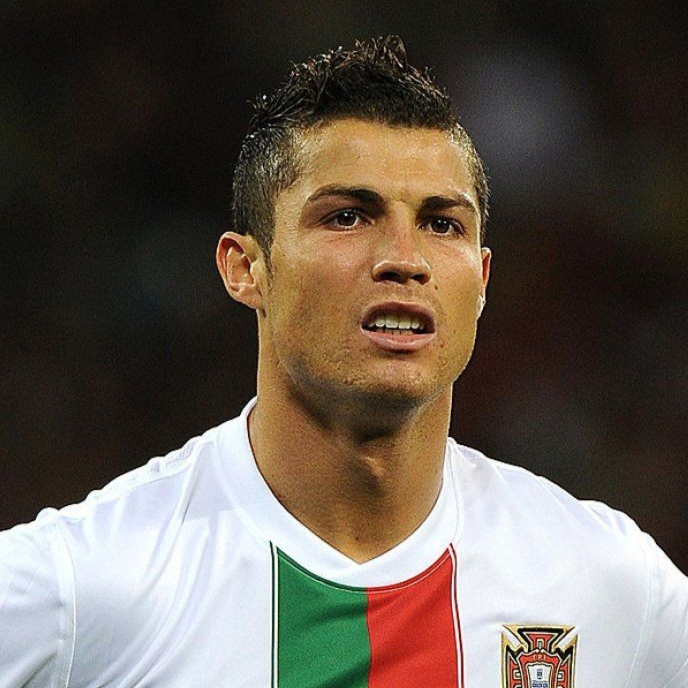
- Age : 24/25 years old
- Club : Real Madrid
- Statistics : 59 games, 48 goals, 22 assists
- Trophies : Liga Vice-Champion
- Individual Awards : Champions League TOTY, Liga TOTY
In 2010, Cristiano Ronaldo delivered a year of relentless brilliance, proving why he was one of the most unstoppable forces in world football. Leading Real Madrid, he finished the year with an astonishing 45 goals in 48 matches, showcasing his explosive speed, technical mastery, and relentless drive. His defining moment came in the Copa del Rey final against Barcelona, where he scored the winning goal with a towering header, securing Madrid’s first Copa del Rey title in years. His performances in La Liga were relentless, finishing the season with 40 league goals, a tally that highlighted his consistency and dominance. On the international stage, Ronaldo was instrumental in Portugal’s Euro 2012 qualification, delivering decisive performances in the playoffs against Bosnia. His ability to rise in high-pressure moments, combined with his leadership and consistency, made 2010 a landmark year in his legendary career.
#4 Xavi Hernández
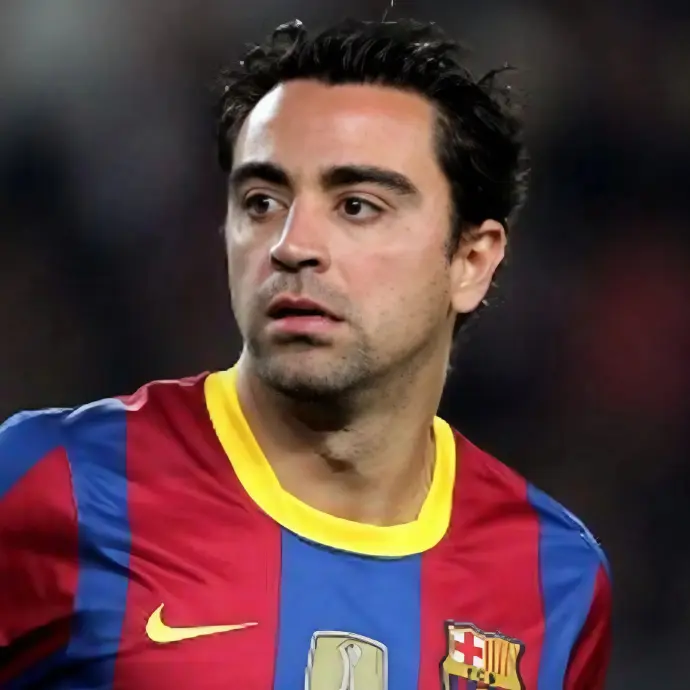
- Age : 31 years old
- Club : FC Barcelona
- Statistics : 62 games, 7 goals, 21 assists
- Trophies : World Cup, Liga, Spanish Supercup
- Individual Awards : World Cup TOTT, Liga TOTY
In 2010, Xavi Hernández delivered a year of midfield mastery, proving why he was one of the most intelligent and technically gifted playmakers in world football. Leading Barcelona, he played a crucial role in their La Liga-winning campaign, dictating the tempo with his precise passing, vision, and ability to control games. His defining moment came in the World Cup with Spain, where he orchestrated their midfield dominance, delivering a masterclass in possession and control. His performance in the semifinal against Germany was particularly outstanding, as he dictated the rhythm of the match, ensuring Spain’s control and eventual victory. His ability to dictate play, maintain composure under pressure, and deliver game-changing moments made 2010 a career-defining year, reinforcing his reputation as one of the most elegant midfielders of his generation.
#3 Wesley Sneijder
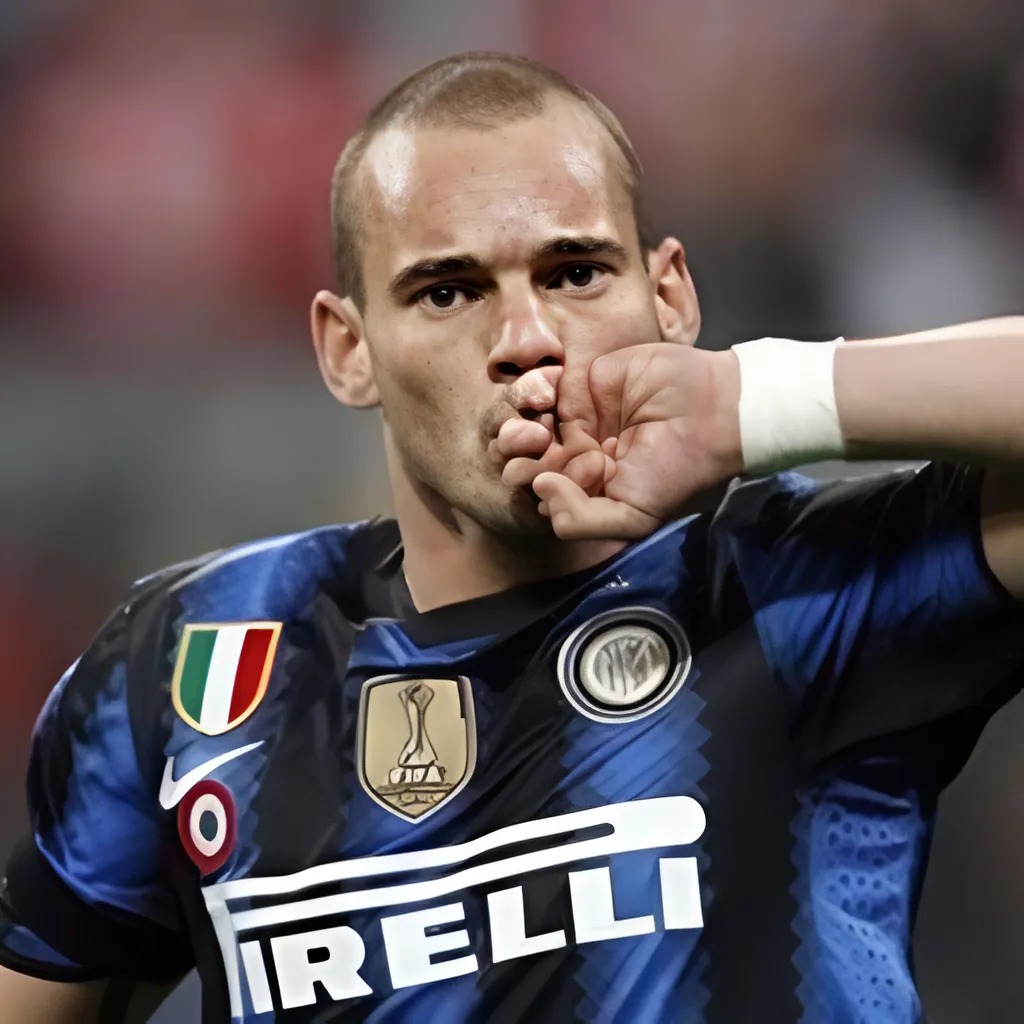
- Age : 25/26 years old
- Club : Inter Milan
- Statistics : 63 games, 13 goals, 18 assists
- Trophies : Finalist World Cup, Champions League, Serie A, Club World Cup, Finalist UEFA Supercup, Italian Cup, Italian Supercup
- Individual Awards : World Cup TOTT, Champions League TOTY
In 2010, Wesley Sneijder delivered a year of sheer brilliance, proving why he was one of the most complete midfielders in world football. Leading Inter Milan, he played a crucial role in their historic treble, winning Serie A, Coppa Italia, and the Champions League, where his creativity and vision were instrumental. His defining moment came in the Champions League final against Bayern Munich, where he provided a crucial assist and dictated the tempo of the match. On the international stage, Sneijder was the heartbeat of the Netherlands’ World Cup campaign, scoring five goals and leading his team to the final against Spain, where he was inches away from securing victory. His ability to control games, deliver decisive passes, and rise in high-pressure moments made 2010 a career-defining year, reinforcing his reputation as one of the best midfielders of his generation.
#2 Andrés Iniesta
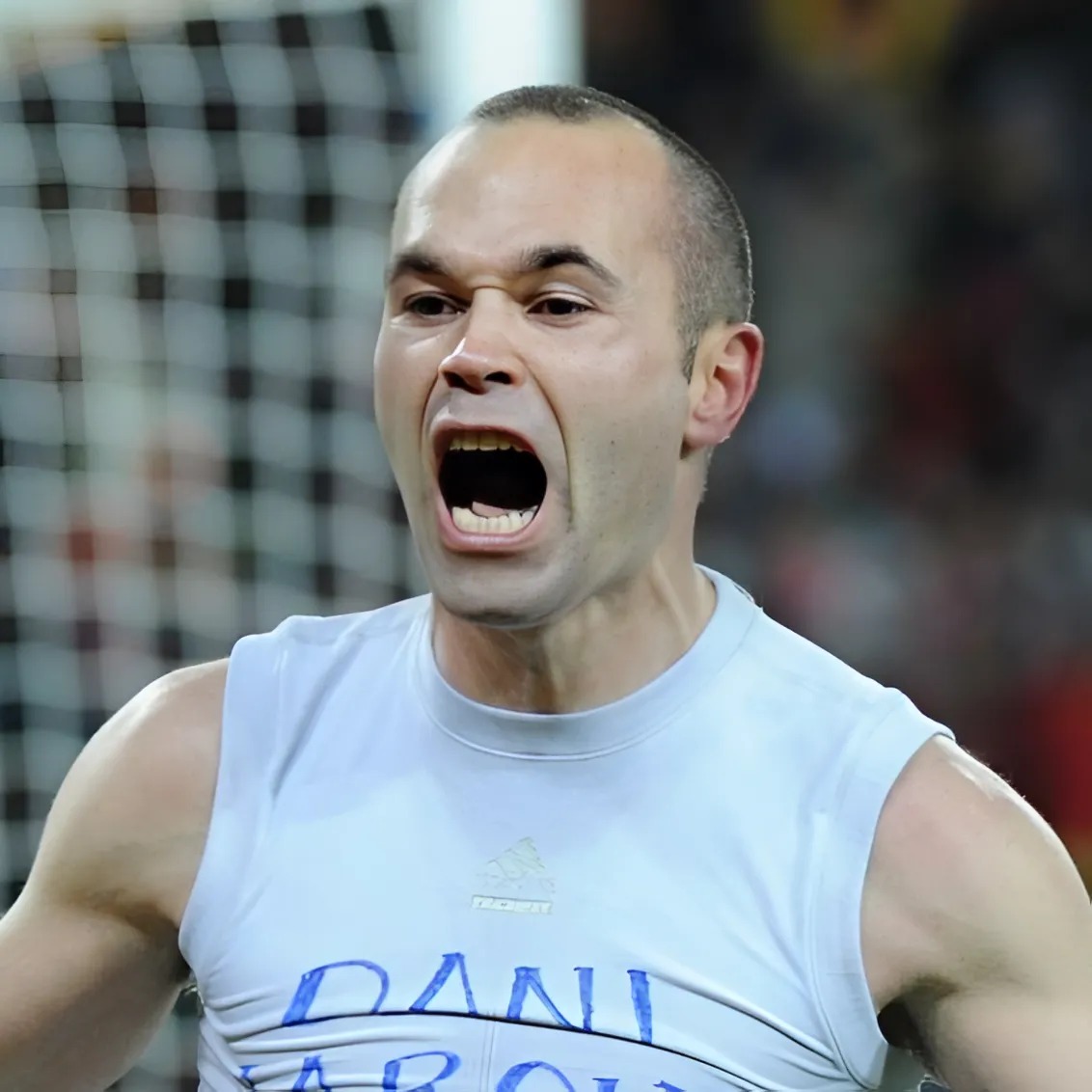
- Age : 25/26 years old
- Club : FC Barcelona
- Statistics : 59 games, 8 goals, 14 assists
- Trophies : World Cup, Liga, Spanish Supercup
- Individual Awards : World Cup TOTT, Liga TOTY
In 2010, Andrés Iniesta delivered a year of pure footballing brilliance, proving why he was one of the most intelligent and technically gifted playmakers in the world. His defining moment came in the World Cup final, where he scored the winning goal against the Netherlands, securing Spain’s first-ever World Cup title and cementing his place in football history. His ability to dictate play, maintain composure under pressure, and deliver game-changing moments made him the heartbeat of Spain’s midfield throughout the tournament. Beyond his international success, Iniesta continued to shine for Barcelona, playing a crucial role in their La Liga-winning campaign, orchestrating attacks with his precise passing and vision. His combination of intelligence, technical mastery, and clutch performances made 2010 a career-defining year, reinforcing his reputation as one of the most elegant midfielders of his generation.
Winner : Lionel Messi
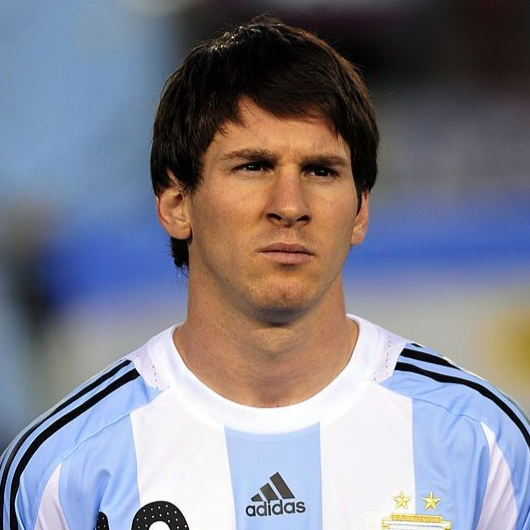
- Age : 22/23 years old
- Club : FC Barcelona
- Statistics : 64 games, 60 goals, 21 assists
- Trophies : Liga, Spanish Supercup
- Individual Awards : Champions League TOTY, Liga POTY, Liga TOTY
In 2010, Lionel Messi delivered a year of absolute footballing brilliance, proving why he was the most unstoppable force in world football. Leading Barcelona, he played a crucial role in their La Liga and Champions League-winning campaign, dazzling with his dribbling, vision, and goal-scoring ability. His defining moment came in the Champions League quarter-final against Arsenal, where he scored four goals in a single match, showcasing his ability to dominate on the biggest stage. Messi finished the year with an astonishing 60 goals and 21 assists, making him the most productive player in world football. His ability to dictate play, create chances, and produce moments of magic made 2010 a career-defining year, reinforcing his reputation as the best player in the world at the time.
Beyond his goal-scoring exploits, Messi’s overall impact on Barcelona’s style of play was unparalleled. His ability to seamlessly link up with Xavi and Iniesta in midfield created a level of fluidity that made Barcelona nearly impossible to stop. His dribbling runs, often starting from deep positions, left defenders helpless, and his ability to find space in tight areas made him a constant threat. His performances in La Liga were relentless, finishing the season with 34 league goals, helping Barcelona secure another domestic title.
Messi’s influence extended beyond club football, as he continued to shine for Argentina, delivering decisive performances in international friendlies and World Cup qualifiers. His ability to adapt to different tactical setups while maintaining his brilliance made him the most complete player in the world. 2010 was the year Messi reached new heights, setting the standard for individual excellence in football.